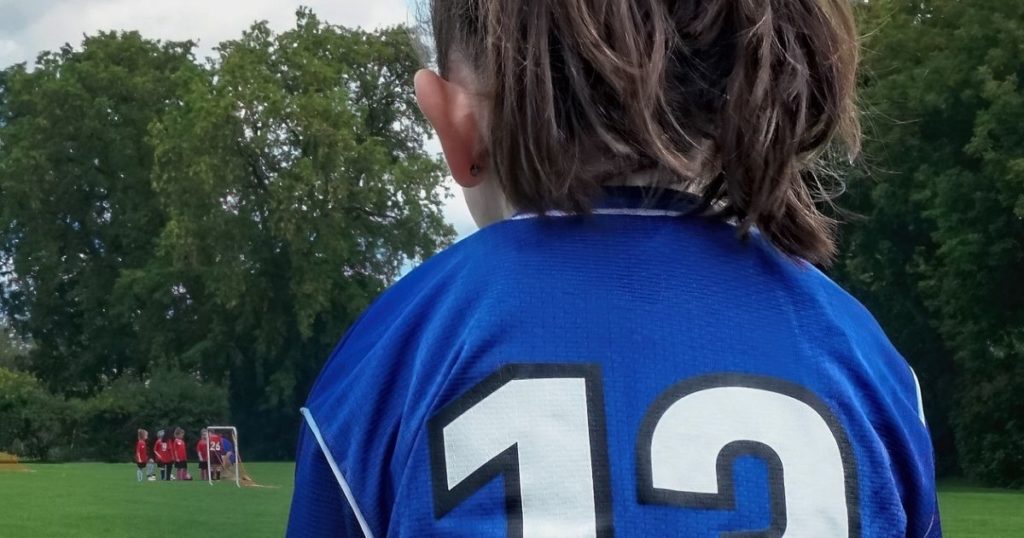"A lot of the time I see kids that don't enjoy being out there and that's a shame" - Tiger Woods
Imagine being out on a football pitch.
You're up against people you've never seen before.
There's lot of shouting coming from the 50+ crowd who are there watching you. You don't know what they're saying, but it's loud. Possibly angry, it's hard to differentiate.
A ball comes near you and you hear about 30 voices scream "SHOOOOOT!!!" Another 5 yell "PASS!!!!!" and you have 2 opponents coming for you at full speed.
Oh...and you're 8 years old.
Nearly everyday I see a coach ask "how can I get (insert name here) to perform better on match days", or words to that effect. They seek some magic tip, trick or activity like human beings are that simple.
They're not. We're not. Children are perhaps even more complex.
There could be any number of reasons why children struggle to perform when it comes to a match day. Here are 5 that need careful consideration.
School Life

I spoke to some of the U12's of our club recently, who are due to start secondary school within a few days. I asked them how they felt about it.
One was excited.
Another had no feelings about it at all.
The other two were nervous, one far more than the other.
For such a big change in their life, this could be impacting everything that they do, Football included.
This is just one example of how what is happening at school can have an effect on a child. Bullying, poor performance, not liking teachers, not eating, a poor maths test, not getting to be milk monitor...
A study found at that a negative school experience can leave people feeling 30% less happy. Subjects discussed feelings of stress, anxiety, lack of self-esteem and even suicide.
Not so easy to dribble at an opponent with all that going on.
A player I coach was suffering from bullying about 18 months ago. Her confidence in games was non-existent. Finding this out, I was able to tailor my interactions with her to do what I could to help rebuild that.
Last week she won player of the match, winning every tackle she made, completing passes and nearly scoring her first goal. A complete turnaround from the girl who just stood there previously.
Check in on your players. Find out about their school lives. Ask what subjects they like, what their favourite part of the day was and so forth.
Home Life

My parents divorced when I was 2. While I'm too young to remember that, by all accounts my appetite changed almost instantly.
I went from eating whatever was put in front of me to being the world's fussiest eater.
At the time it seemed I was just being difficult. Hindsight suggests otherwise.
Children spend most of their time at 2 places - School and Home. Experiences in these 2 places are bound to have an effect on how they play Football...both positive and negative.
The past 18 months have been tough on everyone. People have lost jobs and income and as a result, ways of life have changed.
Some have even experienced going into poverty.
Children from impoverished families have been proven to have lower concentration levels and team work capabilities (study), key skills in playing Football.
Their parents may be working long, long hours across multiple jobs to provide ends meat. Barely seeing and not understanding why will surely lead to disappointment, especially if Mom or Dad are not at the game to watch them play.
Additionally, sibling bullying, verbal abuse and, as documented in the documentary Football's Darkest Secret, sexual abuse are all factors that we may not be aware of.
As with school life, ask questions, work with families and keep up to date with your club welfare officer.
Poor Diet

Ever tried playing a match after a Big Mac?
If you're like me, just typing that makes you feel sick.
It's not just that initial physical feeling. Lethargy, unrest, a struggle sleeping (which we'll come to!) and bloating are just a number of factors brought on after eating food which could be of better nutritional value.
According to the Society for Neuroscience, studies reveal that diets with high levels of saturated fats actually impair learning and memory (article).
In these times of financial stress, over processed food full of saturated and even worse trans fats are a far more budget friendly option.
If you've an early morning game and the kids eat cereal prior? Well, they're basically eating a dessert for their pre-match meal.
According to Unicef, the number of overweight children has doubled in the last 20 years.
Linked to this are conditions such as diabetes and asthma. These would provide a challenge for even the most professional of box-to-box midfielders to get up and down the pitch all game.
Try setting your players a homework task for them to find out what top football players eat.
Lack of Sleep

Listening to a podcast interview with a sleep expert, I discovered that being sleep deprived and driving is the equivalent of driving after 4/5 beers.
That simple fact really opened my eyes (no pun intended) to the importance of sleep upon performance.
The National Sleep Foundation recommends 9-11 hours for the foundation phase ages.
For a 10am game, where everyone meets at 9:30am and children leave home at 9:00am having woke up at 7:30am to get ready, that would mean at a MINIMUM, they would need to be asleep (not in bed) by 10:30pm.
That's with the suggestion that all children's body clocks, circumstances and sleep patterns are the same.
As we all know, they're not.
Studies have shown that children with irregular sleep patterns perform worse than those who sleep with regularity.
Case in point, a player that I coach, who often performs very well for her age both in games and practice, spent the first 10 minutes of a recent match looking like a zombie.
When I asked her if she was okay, she told me that she was tired as she was up until 10:30 the night before with her parents at a party.
Regular sleep pattern well and truly ruined.
Additionally, something that is never considered, is that people have preferred times when they like to sleep and wake up. Where as some can wake up at 4am and be asleep by 8pm and perform miracles throughout the day, others will be non-functioning all day, no matter how hard they try not to be.
Are your kick off times suiting your players' sleep needs? Or are they suited to you?
If you find your players are sleepy, try and get a gauge of what time they wake up when there is no school. It may be that a later (or earlier) kick off will be more to their benefit.
Quality of Coaching
Have you asked a fellow coach how they "got on" after a game and received an answer which only talked about what the players didn't do?
Naturally it was all on the players. The coach did everything perfect.
Maybe you was once that coach. I know that I was.
Critically evaluating your own performance isn't an easy thing to do. I would argue that few can.
It takes a lot of self awareness to finish a practice, and especially a game, and ask "what could I have done better?" Answering that question in regards to the players is a piece of cake.
Truthfully, we all know that there are things we can improve on. I've been doing this for 18 years and am still seeking out help and advice. Videoing my sessions can be a hard watch afterwards. Without knowing what I'm saying, how I'm sounding and how my body language looks, I'll never pick up on it.
Next time a player doesn't perform the way you would like, or believe they can, ask yourself the question "did I help them enough?"
You'll both be better for it.

